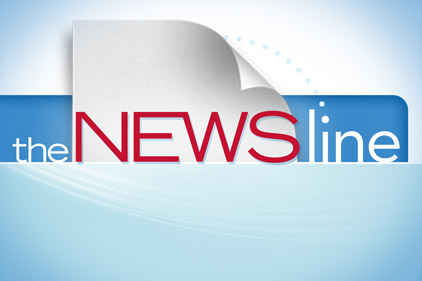BERLIN — Economic theorist Jeremy Rifkin delivered a keynote address at Germany’s “Energy Transition Dialogue” summit, March 26, hosted by Sigmar Gabriel, vice chancellor and economic minister, and Frank-Walter Steinmeier, foreign minister, and attended by government ministers and officials from 61 nations.
Rifkin argued Germany’s historic transition to zero-marginal-cost renewable energy signaled the dawn of the Third Industrial Revolution and a sustainable post-carbon economy. He urged government officials to erect a world-wide Internet of Things (IoT) infrastructure that will allow families, communities, and businesses to generate their own renewable energy and share their green electricity with others across a digital, global, energy Internet.
“To grasp the enormity of the economic change taking place in Germany and around the world, we need to understand the technological forces that have given rise to new economic systems throughout history,” he said. “Every great economic paradigm requires three elements, each of which interacts with the other to enable the system to operate as a whole: new communication technologies to more efficiently manage economic activity, new sources of energy to more efficiently power economic activity, and new modes of transportation to more efficiently move economic activity.”
In the 19th century, steam-powered printing, the telegraph, abundant coal, and locomotives on national rail systems gave rise to the First Industrial Revolution. In the 20th century, centralized electricity, the telephone, radio, television, cheap oil, and internal combustion vehicles on national road systems converged to create an infrastructure for the Second Industrial Revolution. Today, Germany is laying the ground work for the Third Industrial Revolution.
“The digitalized communication Internet is converging with a digitalized renewable energy Internet and a digitalized automated transportation and logistics Internet, to create a super IoT. In this era, sensors will be embedded into every device and appliance, allowing them to communicate with each other and send data in real time to the communication, energy, and transportation and logistics Internets, providing up-to-the-moment information for managing, powering, and moving economic activity across the myriad value chains in a smart, digital Germany.
“In this expanded digital economy, private enterprises connected to the Internet of Things can use big data and analytics to develop algorithms that speed efficiency, increase productivity, and dramatically lower the marginal cost of producing, storing, distributing, and using renewable energy to near zero, making German businesses the most highly productive and competitive in the global marketplace,” he added.
Additionally, Rifkin predicted this global energy transition will revolutionize every commercial sector, bringing unprecedented economic opportunities. For more information on Rifkin’s speech, or Germany’s “Energy Transition Dialogue” summit, visit http://bit.ly/BerlinEnergyTransition.
Publication date: 4/20/2015
Want more HVAC industry news and information? Join The NEWS on Facebook, Twitter, and LinkedIn today!





.jpg?height=200&t=1724079994&width=200)


